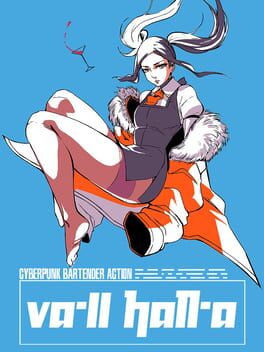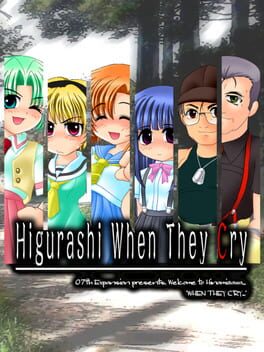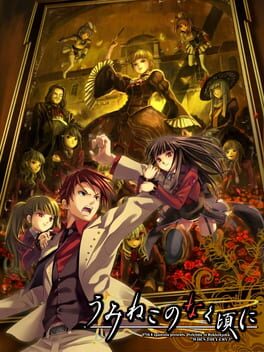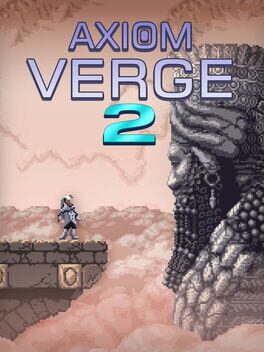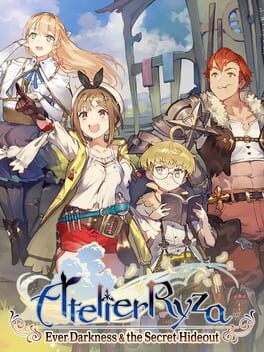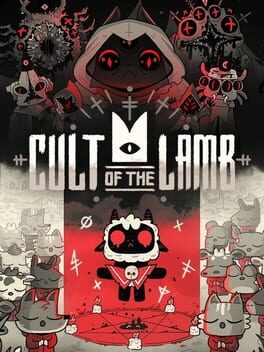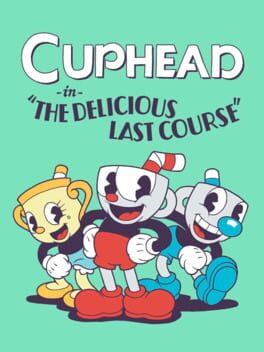DonGor
8 reviews liked by DonGor
This review contains spoilers
Trying to stitch my thoughts together is more than a little difficult here.
Umineko is a game that holds as many virtues as it does small flaws. It can offer some of the most impassioned and thought provoking themes I have waded through in recent memory, offer up interesting character beats and thematic throughlines closed so tightly, you'd think this was a masterwork decades in the making. But, it is also present to flaws that exist outside this sphere, flaws in the pacing, in the prose, flaws in the sheer girth of some of the content on offer. Which is why it's difficult to offer great praise to Umineko.
In my reviews, I try to avoid discussing negative aspects as I find them to detract from any overall point or any quality look into a work's themes. With Umineko though, these negative aspects are a part of the themes, as the greatest theme of the game is in how we engage with media. The core heart of the game can be found in a battle between people debating mystery vs fantasy, whether mystery is really all its chalked up to be, and whether fantasy is worthwhile as a narrative to follow. It's an interesting discussion, one obviously inspired by R07's own experiences in writing Higurashi, which had a fantastical concluding arc that (in my experience) was upsetting for many fans of the time. Even though, that concluding arc is still very contentious, and a bit of spite can be felt in Umineko's discussions on this media. On the ideas of mystery and fantasy.
"To open the catbox" is seen as something undesirable, to preserve the mystery, but the reader is constantly egged on that the inside of the catbox is that of fantasy. It leads to this incredible desire to want to open it up and figure out the inner machinations of it, but that feeling is fleeting. Another flaw of Umineko's comes in here, and that is its length, it's very long and drawn out but it's to an advantage. That feeling of wanting to unravel every last mystery dissipates the more the characters sit around and discuss it. Are the answers really that interesting, compared to this? Could any locked room mystery solution really compare to the battle of wits that Battler has with Beatrice, Erika, or Bernkastel?
It makes sense in this way, that all the mysteries we do get upfront answers to are rather lackluster. The mystery of the epitaph is solved, and it's more a vehicle to explore the nuances of another character while the actual path to solving it is so obtuse as to be borderline impossible for any player not writing every detail shared about Kinzo and his island down. In the Episode 7 Tea Party, we are offered not a mystery, but a brutal series of murders, reflective of this desire to open the catbox. We open it, and we could receive one of the worst endings possible, one that betrays almost all of our expectations about these characters we trust. Similarly, Bernkastel's game in Episode 8 offers us the one truly solvable murder mystery, complete with correct answers, and it's the absolute worst outcome the player could receive. But, the point of that is not the answers, it's the fun you have speculating and piecing together the clues.
The fun is in the dialogue. How you talk to others, and engage with them. This can be applied to all media, not just mysteries, but it's most apt here. To further this theme, Umineko even denies us a catharsis in an answer to all the events of the prior episodes. A new character alludes to them, but he offers us vague nudges, the onus is still on the player to piece it together for themselves. Beatrice herself is never truly 'revealed', we don't get a Higurashi moment where we learn who the mastermind behind the cycles all ending the same really is, we get nudges (very blunt nudges), but respect is given to the characters. They want to keep that vulnerability a secret from prying eyes. Even the true mystery, the one Ange wants to learn, the truth of 1986 is... left up in the air. We only know how it started and how it concluded, but as Battler shows in Episode 8, does that mean it had to be a massacre? Everyone could've had fun until the very last moment, all of this relationship drama they had could've been hearsay, all the family issues illicit rumors.
That is the heart of Umineko, to accept the magic. Battler takes the place of Beatrice in her portrait when he understands this, to keep the catbox closed so that the truth, however unpleasant and brutal, can never be found out. To let the dead rest, and to not pry and deface their memory. This feeds into the ending, the one true choice the player is allowed to make. Was Beatrice's magic truly magic, or was it a trick?
At this point, I found the latter option completely incomprehensible as a choice. Who would get here and decide "That was a trick", it's an obvious wrong answer based on the themes of the work. As George says, it's on the onus of an adult to clap at a magician's trick and not ruin the magic for the children, but I can look back on my own experiences with the game and remember how I was in the Question Arcs. I loved the idea of denying this magic, and proving it was all a trick, I completely fell into this idea and actually would realize things the same moment Battler did. It was probably the most immersed I've ever been in a game, and that offers me a reasoning why someone would choose 'Trick'.
'Trick' is the option for someone not paying attention. 'Trick' offers an ending that fulfills that, one where Ange embodies Erika, the detective who denies all magic and would seek to ruin the beauty of magic even for children. This ending is not an ending, it fulfills none of the themes of the work and is a conclusion that does not connect to the final Tea Party segments. When I reached the credits and saw the credits from the last seven episodes play out, complete with the first opening of the game, I knew what this ending truly was. It was a sign of a cyclical nature, the player indulging in the behaviors the game advised against, and ultimately repeating the past. Returning, to Rokkenjima, despite leaving it behind.
In sharp contrast, the 'Magic' ending is an ending that fulfills Ange's character and offers a conclusion worthy of everything she had gone through up to this point. It finishes by offering us a bit of 'Magic', a reveal on the fates of Battler and Beatrice. While this section didn't leave much of an impact on me, the Hidden Tea Party at the very end of the game did. Decades later, Ange writes for children, and uses her money to help them, even as she ages and nears death. In this aged state, she is offered her miracle, the blessing of that 'Magic'. She gets to meet Battler again, and then the two return to the Golden Land. Battler embodying the 'Love' behind the 'Mystery', and Ange embodying the 'Fantasy'. It was an ending that really hit me in the moment, gave me a pause for thought as everything reached this point.
I can't say Umineko is a flawless masterpiece, or it touched me in a really deep way (that was Higurashi). But, I find myself appreciating R07's humanity more and more. I played both this and his previous work completely in the original intended fashion. Original sprites and backgrounds, no new "modern generic anime" CGs, no VA, and I think that was best. It allowed me to grasp his works in a much more personal way than I thought possible, it gave me more immersion hearing a looping rain sound effect at my workplace, and the absolutely perfect music cues hit at their fullest potential. Like I said, I can't say any of this work is perfect, I can't even really say I would recommend this to most people, but it's left an impression that I will probably never shake.
A game made of 'Ai'.
Umineko is a game that holds as many virtues as it does small flaws. It can offer some of the most impassioned and thought provoking themes I have waded through in recent memory, offer up interesting character beats and thematic throughlines closed so tightly, you'd think this was a masterwork decades in the making. But, it is also present to flaws that exist outside this sphere, flaws in the pacing, in the prose, flaws in the sheer girth of some of the content on offer. Which is why it's difficult to offer great praise to Umineko.
In my reviews, I try to avoid discussing negative aspects as I find them to detract from any overall point or any quality look into a work's themes. With Umineko though, these negative aspects are a part of the themes, as the greatest theme of the game is in how we engage with media. The core heart of the game can be found in a battle between people debating mystery vs fantasy, whether mystery is really all its chalked up to be, and whether fantasy is worthwhile as a narrative to follow. It's an interesting discussion, one obviously inspired by R07's own experiences in writing Higurashi, which had a fantastical concluding arc that (in my experience) was upsetting for many fans of the time. Even though, that concluding arc is still very contentious, and a bit of spite can be felt in Umineko's discussions on this media. On the ideas of mystery and fantasy.
"To open the catbox" is seen as something undesirable, to preserve the mystery, but the reader is constantly egged on that the inside of the catbox is that of fantasy. It leads to this incredible desire to want to open it up and figure out the inner machinations of it, but that feeling is fleeting. Another flaw of Umineko's comes in here, and that is its length, it's very long and drawn out but it's to an advantage. That feeling of wanting to unravel every last mystery dissipates the more the characters sit around and discuss it. Are the answers really that interesting, compared to this? Could any locked room mystery solution really compare to the battle of wits that Battler has with Beatrice, Erika, or Bernkastel?
It makes sense in this way, that all the mysteries we do get upfront answers to are rather lackluster. The mystery of the epitaph is solved, and it's more a vehicle to explore the nuances of another character while the actual path to solving it is so obtuse as to be borderline impossible for any player not writing every detail shared about Kinzo and his island down. In the Episode 7 Tea Party, we are offered not a mystery, but a brutal series of murders, reflective of this desire to open the catbox. We open it, and we could receive one of the worst endings possible, one that betrays almost all of our expectations about these characters we trust. Similarly, Bernkastel's game in Episode 8 offers us the one truly solvable murder mystery, complete with correct answers, and it's the absolute worst outcome the player could receive. But, the point of that is not the answers, it's the fun you have speculating and piecing together the clues.
The fun is in the dialogue. How you talk to others, and engage with them. This can be applied to all media, not just mysteries, but it's most apt here. To further this theme, Umineko even denies us a catharsis in an answer to all the events of the prior episodes. A new character alludes to them, but he offers us vague nudges, the onus is still on the player to piece it together for themselves. Beatrice herself is never truly 'revealed', we don't get a Higurashi moment where we learn who the mastermind behind the cycles all ending the same really is, we get nudges (very blunt nudges), but respect is given to the characters. They want to keep that vulnerability a secret from prying eyes. Even the true mystery, the one Ange wants to learn, the truth of 1986 is... left up in the air. We only know how it started and how it concluded, but as Battler shows in Episode 8, does that mean it had to be a massacre? Everyone could've had fun until the very last moment, all of this relationship drama they had could've been hearsay, all the family issues illicit rumors.
That is the heart of Umineko, to accept the magic. Battler takes the place of Beatrice in her portrait when he understands this, to keep the catbox closed so that the truth, however unpleasant and brutal, can never be found out. To let the dead rest, and to not pry and deface their memory. This feeds into the ending, the one true choice the player is allowed to make. Was Beatrice's magic truly magic, or was it a trick?
At this point, I found the latter option completely incomprehensible as a choice. Who would get here and decide "That was a trick", it's an obvious wrong answer based on the themes of the work. As George says, it's on the onus of an adult to clap at a magician's trick and not ruin the magic for the children, but I can look back on my own experiences with the game and remember how I was in the Question Arcs. I loved the idea of denying this magic, and proving it was all a trick, I completely fell into this idea and actually would realize things the same moment Battler did. It was probably the most immersed I've ever been in a game, and that offers me a reasoning why someone would choose 'Trick'.
'Trick' is the option for someone not paying attention. 'Trick' offers an ending that fulfills that, one where Ange embodies Erika, the detective who denies all magic and would seek to ruin the beauty of magic even for children. This ending is not an ending, it fulfills none of the themes of the work and is a conclusion that does not connect to the final Tea Party segments. When I reached the credits and saw the credits from the last seven episodes play out, complete with the first opening of the game, I knew what this ending truly was. It was a sign of a cyclical nature, the player indulging in the behaviors the game advised against, and ultimately repeating the past. Returning, to Rokkenjima, despite leaving it behind.
In sharp contrast, the 'Magic' ending is an ending that fulfills Ange's character and offers a conclusion worthy of everything she had gone through up to this point. It finishes by offering us a bit of 'Magic', a reveal on the fates of Battler and Beatrice. While this section didn't leave much of an impact on me, the Hidden Tea Party at the very end of the game did. Decades later, Ange writes for children, and uses her money to help them, even as she ages and nears death. In this aged state, she is offered her miracle, the blessing of that 'Magic'. She gets to meet Battler again, and then the two return to the Golden Land. Battler embodying the 'Love' behind the 'Mystery', and Ange embodying the 'Fantasy'. It was an ending that really hit me in the moment, gave me a pause for thought as everything reached this point.
I can't say Umineko is a flawless masterpiece, or it touched me in a really deep way (that was Higurashi). But, I find myself appreciating R07's humanity more and more. I played both this and his previous work completely in the original intended fashion. Original sprites and backgrounds, no new "modern generic anime" CGs, no VA, and I think that was best. It allowed me to grasp his works in a much more personal way than I thought possible, it gave me more immersion hearing a looping rain sound effect at my workplace, and the absolutely perfect music cues hit at their fullest potential. Like I said, I can't say any of this work is perfect, I can't even really say I would recommend this to most people, but it's left an impression that I will probably never shake.
A game made of 'Ai'.
Great characters and an interesting world, but the story and mechanics are lacking.
The entire bartending schtick really doesn't add much since, with very rare exceptions, the most that will happen is a brief few lines about the characters telling you whether they like the drink or not. All it does is interrupt the dialogue which, for a dialogue-focused visual novel, really shouldn't be done without a compelling reason.
The story is also disappointing and felt unfinished. I legitimately didn't realize the game had ended until the credits started rolling because of all the plot points and characters still left dangling by the end. Immensely unsatisfying and sours much of the earlier parts knowing they wont actually lead anywhere.
The entire bartending schtick really doesn't add much since, with very rare exceptions, the most that will happen is a brief few lines about the characters telling you whether they like the drink or not. All it does is interrupt the dialogue which, for a dialogue-focused visual novel, really shouldn't be done without a compelling reason.
The story is also disappointing and felt unfinished. I legitimately didn't realize the game had ended until the credits started rolling because of all the plot points and characters still left dangling by the end. Immensely unsatisfying and sours much of the earlier parts knowing they wont actually lead anywhere.
The overarching story is unsatisfying, but many of the individual episodes are still good and worth experiencing. Unfortunately, its hard to properly experience those few good episodes without reading the rest of the story as well which puts me in a bit of a dilemma when it comes to recommendations.
Probably give it a shot, but don't force yourself to continue if its not worth it. Just read it one episode at a time.
Probably give it a shot, but don't force yourself to continue if its not worth it. Just read it one episode at a time.
MysteryBait carried ad infinitum in a work made on the march that has the impudence to make you believe that it has an internal logic and a common thread, umineko is one of those pretentious stories that just by taking itself less seriously and stop pretending to be the most serius thing in the world would gain an infinity of value,It is proof that you cannot expect to generate an interconnected plot full of characters that come out of nowhere and ambiguous rules that contradict each other along the way while the story constantly self-sabotages its progress in order to lengthen the gum as much as possible... and that it is useless to have a deep thematic value with good dynamics in your cast, if in the end everything will be constantly reset.
Axiom Verge 2
2021
Combat sucks
Not a bad game, but it lost my interest. Wasn't fan of combat system, Alchemy became tedious to me.
Cult of the Lamb
2022
In its current state the game is not worth it.
It has so many gamebreaking bugs that your experience will be ruined if you encounter one, like me who encountered 1 softlock bug each day for the 3 days i played this game.
Also the game kind of sucks? its not bad but also its not good, the roguelike dungeon gameplay is pretty simple and boring, and the town section is interesting at the start but becames boring at the middle and end, to the point where i dont even pay attention to it. The progress system is also very boring.
So yeah, if you have any interest in playing this game dont play it now, wait until it leave early access... what do you mean this is a full release?
It has so many gamebreaking bugs that your experience will be ruined if you encounter one, like me who encountered 1 softlock bug each day for the 3 days i played this game.
Also the game kind of sucks? its not bad but also its not good, the roguelike dungeon gameplay is pretty simple and boring, and the town section is interesting at the start but becames boring at the middle and end, to the point where i dont even pay attention to it. The progress system is also very boring.
So yeah, if you have any interest in playing this game dont play it now, wait until it leave early access... what do you mean this is a full release?
This review contains spoilers
While i loved the new bosses (the last boss is pretty cool and it looks awesome) and the new character / mechanics, the dlc took so long just to add 5-6 new bosses that can be finished in 2-3 hours.

